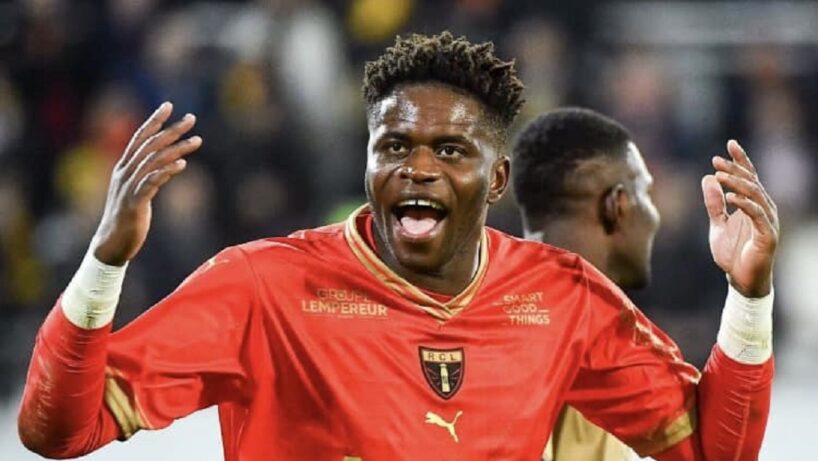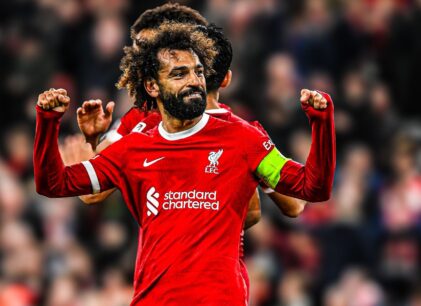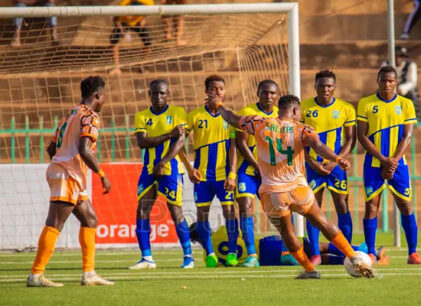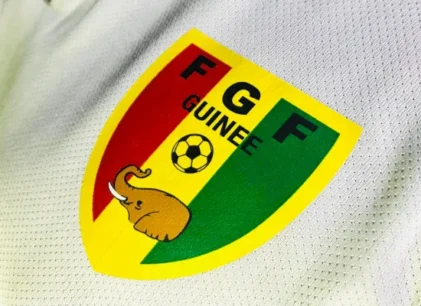In Congo-Brazzaville, if Brice Samba’s involvement with the French team makes people happy, other Congolese regret that “their” son did not play for the national team. And others talk about the lesson to be learned.
“I can’t wait to see him in a blue, white, red jersey,” Isaac Ipolo is impatient. The person in question that this youngster from the Foucks neighborhood, in the center of Pointe-Noire wants to see donning the tricolor tunic, is indeed Brice Samba.
Brice Samba and his friends and family were jubilant on March 16 when Didier Deschamps announced that he had been called up to the French national team, they never imagined that they would be transmitting their joy some 10,000 kilometers away. In Pointe-Noire, as in many other parts of Congo-Brazzaville, Samba Brice is the talk of the town.
Not because of his performance. Rather because of his origin. Brice Samba was born in Linzolo, a town located some 30 kilometers south of Brazzaville. He is the son of the emblematic Christian Brice Samba, former goalkeeper of the senior Diables rouges between 1989 and 2004.
For many Congolese, this is the perfect excuse to support Brice Samba. “He may be French today, but it is a sporting nationality. Nationality is only an administrative act that cannot cut the umbilical cord that links Samba to his native Congo. Brice remains above all a son of Congo-Brazzaville,” Isaac explains.
But this feeling of pride is far from unanimous. “For me, he is no longer a Congolese. I am content to support those who have chosen to serve the country. I remain focused on Christopher Manfoumbi (goalkeeper of the Congolese national team, NDLR). But I still regret that he did not answer the call of the Congo. His contribution would have been significant to the Red Devils,” laments Ferel Ikoungou, a young man from Mossendjo, a small town in southwest Congo.
“Our blood is at the highest level”
The young sports bettor is referring to Samba’s good season this season in the French Ligue 1. With 21 goals conceded, the “Sang et or” have the best defense in the French league and are in third place (57 points), only two points behind second place Olympique de Marseille. “But it is still frustrating to see a value like that go away in a context where the national team broods,” regrets Ikoungou.
“It’s true, Samba is no longer Congolese. But can you imagine the joy that Cameroonians feel when Mbappe or Tchouameni shines with the French team or Embolo with the Swiss team. The only reason for satisfaction is that our blood is at the highest level,” says Ange Onga from the Matendé district. However, he fears that Brice Samba will not be a starter and will be overshadowed by Mike Maignan or Alphonse Aréola.
However, since the beginning of his professional career with Le Havre in 2012, Brice Samba declines any invitations to him by the Congolese soccer authorities. “Samba did not come but I am still in communication with him and his father. We are still trying to convince him. I have the feeling that he will come to play for his country. But it will take time,” said Paul Put, coach of Congo last year.
For experts, Brice’s decision is legitimate. “Although a native of Congo-Brazzaville, we must know that he was trained and educated in France. So he is the product of French soccer management. Yes, we would have liked to see him in the Red Devils, but we have to take the blame,” said Guy Saturnin Mahoungou, head of the sports department of the Catholic bi-weekly “La Semaine Africaine”.
“We are behind in terms of representation in the western selections”.
Agreeing in the same sense, others go a little further by mentioning the lesson to be learned from this situation. “The case of Samba Brice is not the first of its kind in Congo, because before him, there were players born in France of Congolese parents like Gérald and Franck Passi, as well as Patrice Loko. The situation is not unique in Africa either. Moreover, we are behind in terms of representation in Western teams. Moreover, within the Red Devils, there are players of foreign origin. These are choices that must be respected,” explains Georges Bweillat, a retired journalist and author of several publications on Congolese soccer.
He suggests that: “we should rather try to list the reasons why these children turn their backs on their countries. We must, for example, improve our championship, better review our management so that our soccer attracts sons of the country or more foreigners, “.





